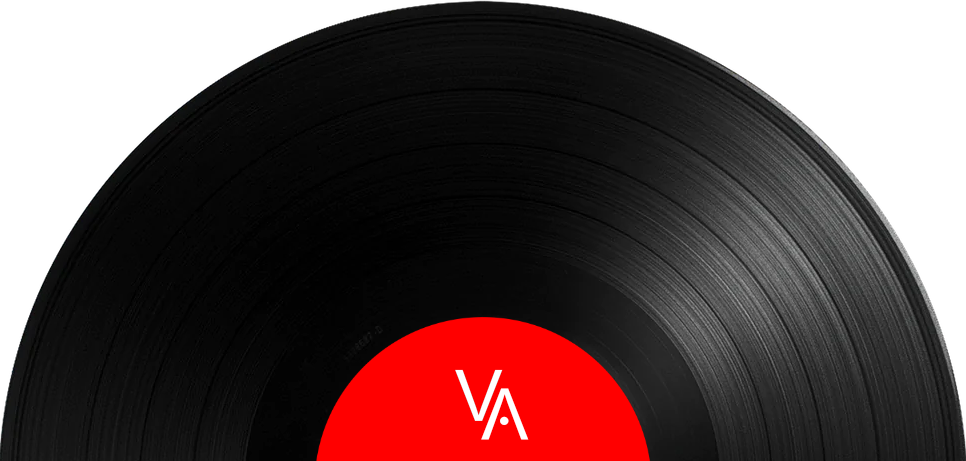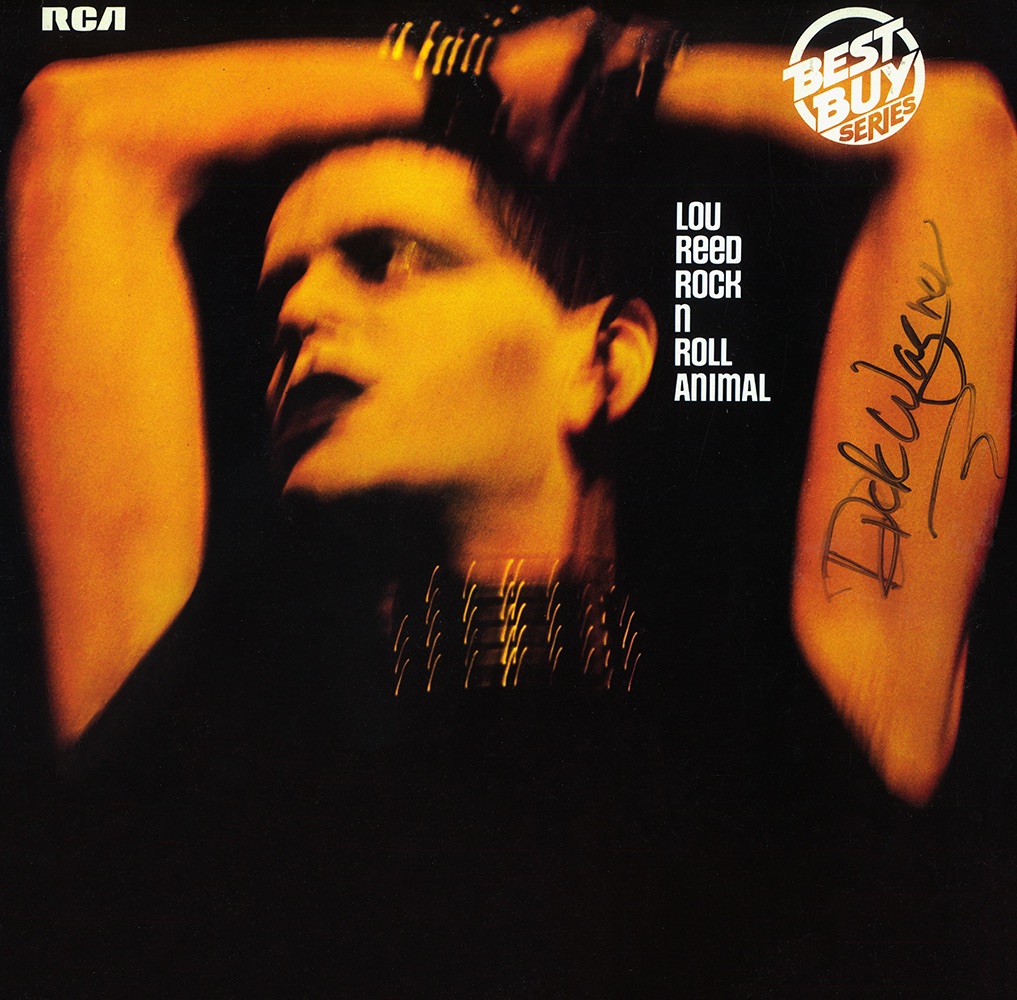
I first discovered Rock N Roll Animal when it came out in 1974. I was 14-years-old and the three minute guitar intro in front of Sweet Jane that opens side one blew me away. Reed's band at the time included Pentti "Whitey" Glan (drums), Prakash John (bass), Ray Colcord (keyboards), and Dick Wagner and Steve Hunter (guitars). The album was recorded on December 21, 1973, at the Academy of Music in New York.
Paul Nelson, a Rolling Stone magazine contributor, was in attendance that night. Writing about this record and its sequel, Lou Reed Live - which were both recorded at the same show - he recalled: "As it happens, I had seen Reed and a mediocre pickup band at Lincoln Center some months earlier in his first New York non-Velvets appearance and he was tragic in every sense of the word. So, at the Academy, I didn't expect much and when his new band came out and began to play spectacular, even majestic, rock & roll, management's strategy for the evening became clear: Elevate the erratic and unstable punkiness of the centrepiece into punchy, swaggering grandeur by using the best arrangements, sound and musicians that money could buy; the trimmings, particularly guitarists Dick Wagner and Steve Hunter, were awesome enough so that if Reed were merely competent, the concert would be a success. And it was."
Lou Reed is a terrible singer. He just is. Even if you love his music you have to admit that he can't sing at all. He sounds like - I dunno - me in the shower. Yet, like it does with so many others, rock and roll has a way to transcend a weakness and even transform it into something definitive - like this. The extraordinary musicianship on this record covers up the fact that Lou Reed really is a terrible singer. More importantly, it turns him into a great singer.
But that's rock and roll.
What a record! The dual guitar team of Wagner and Hunter is so polished the record shines as it spins on the turntable. The rhythm section is solid. Glan's drumming is spot on. There isn't an unnecessary cymbal crash anywhere.
Rock N Roll Animal is, at its core, an album of Reed standards. It opens with Sweet Jane, which follows that amazing guitar intro, and and then slips into an unsettling 13-minute version of Heroin. Side two begins with White Light/White Heat and ends with Rock ‘n’ Roll. Between these two tracks is Lady Day, from the album Berlin.
Even though this is a Lou Reed album, to me it's all about Dick Wagner. Dick blows Lou off the stage. Period.
Oddly, the musicians are not credited on the album. My theory is this might have something to do with compensation, and I suspect they were paid scale (or a small salary of some kind) and received no royalties related to record sales. They don't have to pay you if you're not credited, and it's a dirty trick, especially considering the greatness of the musicianship here, which carries the entire record.
Reed knew how good this band was, and I think he grew annoyed at all the accolades they were getting. So he and dumped them. But they would move on to greater heights as the first Alice Cooper solo band. One of the best-known songs written by Wagner is Only Women Bleed, which he wrote during his tenure with the Michigan band Frost. Then titled Movin' On, Wagner was unhappy with the song's lyrics and refused to release it. But years later, when he played the song for Cooper, Alice mentioned he had a title for a song he had been wanting to write called Only Women Bleed and thought Wagner's music was perfect for it. Cooper and Wagner then penned new lyrics together and recorded it for Cooper's debut solo outing, Welcome to My Nightmare. Since its initial release in 1975 the song has been covered by more than 30 artists, including Tina Turner, Etta James and Guns n' Roses.
Wagner would go on to co-write many more songs with Cooper, including I Never Cry, You And Me and How You Gonna See Me Now, the latter with the additional help of Elton John lyricist Bernie Taupin. As a power ballad composer, Wagner is hard to match.
I don't know how many times I played this record as a teenager. Something about it - the guitars, most likely - drew me in and held me close. What incredible musicianship: simple yet so beautiful.
At the tail end of 2013 Wagner and his band gave a free concert in Stratford, Ontario. I owned a bed and breakfast at the time and part of our schtick was rock and roll memorabilia. We had signed posters and album covers hanging on all the walls and I thought I'd ask Wagner to sign the cover of Rock N Roll Animal, which he graciously did. He also signed the "red guitar" - a Stratocaster replica I got many rock and rollers to sign as they came through town.
The concert that night was outdoors, down by the river in the old bandshell. Pre-show I decided to go and look for Wagner and found him trying - unsuccessfully - to open the door of a port-a-potty. He just couldn't figure it out, so I stepped in and opened it for him. He mumbled a thank you and went inside and I closed the door behind him. After he came out he saw the record I was holding and asked to see it. I handed it to him and watched him look at it. Then he looked at me and said, "This is an iconic record."
I said, "It sure is."
"Would you like me to sign it?" he asked me.
"That would be great."
We talked for a bit, mostly about that record. He seemed happy that I knew who he was and how great that record is. But he didn't look well, and I remember thinking he wasn't long for the world. As it turned out, he wasn't.
As soon as Wagner and his band took the stage that night clouds started to roll in. Two songs in it started to drizzle. By the third song it was pouring buckets and Wagner and his band had to leave the stage. "I'll come back next year and finish this," he said. But he didn't.
Wagner died not even a year later, in July 2014. And I'm so happy to have met him.
This is such a great record! Definitely …
I first discovered Rock N Roll Animal when it came out in 1974. I was 14-years-old and the three minute guitar intro in front of Sweet Jane that opens side one blew me away. Reed's band at the time included Pentti "Whitey" Glan (drums), Prakash John (bass), Ray Colcord (keyboards), and Dick Wagner and Steve Hunter (guitars). The album was recorded on December 21, 1973, at the Academy of Music in New York.
Paul Nelson, a Rolling Stone magazine contributor, was in attendance that night. Writing about this record and its sequel, Lou Reed Live - which were both recorded at the same show - he recalled: "As it happens, I had seen Reed and a mediocre pickup band at Lincoln Center some months earlier in his first New York non-Velvets appearance and he was tragic in every sense of the word. So, at the Academy, I didn't expect much and when his new band came out and began to play spectacular, even majestic, rock & roll, management's strategy for the evening became clear: Elevate the erratic and unstable punkiness of the centrepiece into punchy, swaggering grandeur by using the best arrangements, sound and musicians that money could buy; the trimmings, particularly guitarists Dick Wagner and Steve Hunter, were awesome enough so that if Reed were merely competent, the concert would be a success. And it was."
Lou Reed is a terrible singer. He just is. Even if you love his music you have to admit that he can't sing at all. He sounds like - I dunno - me in the shower. Yet, like it does with so many others, rock and roll has a way to transcend a weakness and even transform it into something definitive - like this. The extraordinary musicianship on this record covers up the fact that Lou Reed really is a terrible singer. More importantly, it turns him into a great singer.
But that's rock and roll.
What a record! The dual guitar team of Wagner and Hunter is so polished the record shines as it spins on the turntable. The rhythm section is solid. Glan's drumming is spot on. There isn't an unnecessary cymbal crash anywhere.
Rock N Roll Animal is, at its core, an album of Reed standards. It opens with Sweet Jane, which follows that amazing guitar intro, and and then slips into an unsettling 13-minute version of Heroin. Side two begins with White Light/White Heat and ends with Rock ‘n’ Roll. Between these two tracks is Lady Day, from the album Berlin.
Even though this is a Lou Reed album, to me it's all about Dick Wagner. Dick blows Lou off the stage. Period.
Oddly, the musicians are not credited on the album. My theory is this might have something to do with compensation, and I suspect they were paid scale (or a small salary of some kind) and received no royalties related to record sales. They don't have to pay you if you're not credited, and it's a dirty trick, especially considering the greatness of the musicianship here, which carries the entire record.
Reed knew how good this band was, and I think he grew annoyed at all the accolades they were getting. So he and dumped them. But they would move on to greater heights as the first Alice Cooper solo band. One of the best-known songs written by Wagner is Only Women Bleed, which he wrote during his tenure with the Michigan band Frost. Then titled Movin' On, Wagner was unhappy with the song's lyrics and refused to release it. But years later, when he played the song for Cooper, Alice mentioned he had a title for a song he had been wanting to write called Only Women Bleed and thought Wagner's music was perfect for it. Cooper and Wagner then penned new lyrics together and recorded it for Cooper's debut solo outing, Welcome to My Nightmare. Since its initial release in 1975 the song has been covered by more than 30 artists, including Tina Turner, Etta James and Guns n' Roses.
Wagner would go on to co-write many more songs with Cooper, including I Never Cry, You And Me and How You Gonna See Me Now, the latter with the additional help of Elton John lyricist Bernie Taupin. As a power ballad composer, Wagner is hard to match.
I don't know how many times I played this record as a teenager. Something about it - the guitars, most likely - drew me in and held me close. What incredible musicianship: simple yet so beautiful.
At the tail end of 2013 Wagner and his band gave a free concert in Stratford, Ontario. I owned a bed and breakfast at the time and part of our schtick was rock and roll memorabilia. We had signed posters and album covers hanging on all the walls and I thought I'd ask Wagner to sign the cover of Rock N Roll Animal, which he graciously did. He also signed the "red guitar" - a Stratocaster replica I got many rock and rollers to sign as they came through town.
The concert that night was outdoors, down by the river in the old bandshell. Pre-show I decided to go and look for Wagner and found him trying - unsuccessfully - to open the door of a port-a-potty. He just couldn't figure it out, so I stepped in and opened it for him. He mumbled a thank you and went inside and I closed the door behind him. After he came out he saw the record I was holding and asked to see it. I handed it to him and watched him look at it. Then he looked at me and said, "This is an iconic record."
I said, "It sure is."
"Would you like me to sign it?" he asked me.
"That would be great."
We talked for a bit, mostly about that record. He seemed happy that I knew who he was and how great that record is. But he didn't look well, and I remember thinking he wasn't long for the world. As it turned out, he wasn't.
As soon as Wagner and his band took the stage that night clouds started to roll in. Two songs in it started to drizzle. By the third song it was pouring buckets and Wagner and his band had to leave the stage. "I'll come back next year and finish this," he said. But he didn't.
Wagner died not even a year later, in July 2014. And I'm so happy to have met him.
This is such a great record! Definitely …



